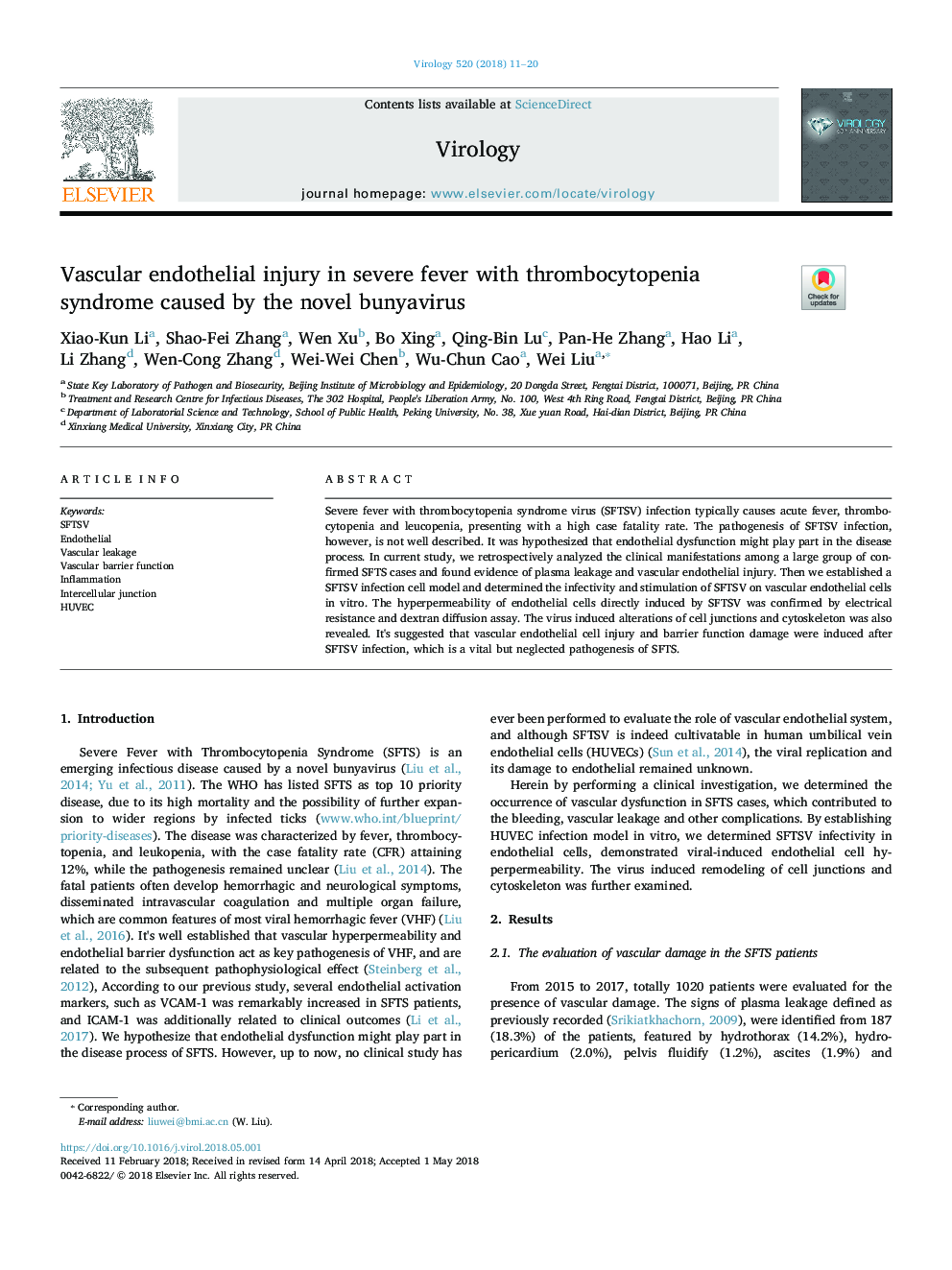| Article ID | Journal | Published Year | Pages | File Type |
|---|---|---|---|---|
| 8751406 | Virology | 2018 | 10 Pages |
Abstract
Severe fever with thrombocytopenia syndrome virus (SFTSV) infection typically causes acute fever, thrombocytopenia and leucopenia, presenting with a high case fatality rate. The pathogenesis of SFTSV infection, however, is not well described. It was hypothesized that endothelial dysfunction might play part in the disease process. In current study, we retrospectively analyzed the clinical manifestations among a large group of confirmed SFTS cases and found evidence of plasma leakage and vascular endothelial injury. Then we established a SFTSV infection cell model and determined the infectivity and stimulation of SFTSV on vascular endothelial cells in vitro. The hyperpermeability of endothelial cells directly induced by SFTSV was confirmed by electrical resistance and dextran diffusion assay. The virus induced alterations of cell junctions and cytoskeleton was also revealed. It's suggested that vascular endothelial cell injury and barrier function damage were induced after SFTSV infection, which is a vital but neglected pathogenesis of SFTS.
Related Topics
Life Sciences
Immunology and Microbiology
Virology
Authors
Xiao-Kun Li, Shao-Fei Zhang, Wen Xu, Bo Xing, Qing-Bin Lu, Pan-He Zhang, Hao Li, Li Zhang, Wen-Cong Zhang, Wei-Wei Chen, Wu-Chun Cao, Wei Liu,
